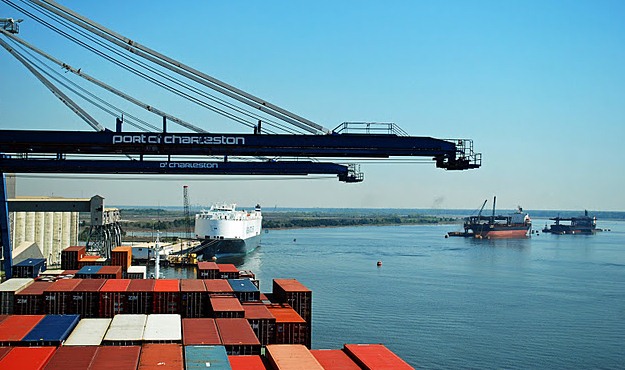Port Expert: New Charleston Depth Won’t Ensure Competitiveness
ALSO, FORECAST CALLS FOR “SLOW GROWTH” IN GLOBAL SHIPPING IN THE DECADE TO COME The PortYou must Subscribe or log in to read the rest of this content.
ALSO, FORECAST CALLS FOR “SLOW GROWTH” IN GLOBAL SHIPPING IN THE DECADE TO COME
The Port

16 comments
I-26 used to be full of trucks hauling cargo containers. The loss of a large portion of that business has to be hitting the SC economy hard.
To be fair, a lot of those containers are probably on trains now.
Port traffic is way down
You are all fits’ sheeple, today. None of you have expresses any doubt about this article. Fits gives no link; Very selective quotes. You believe anything he says as long as it’s critical of SC.. The documented truth is in my posted comments.
Is “Bible Thumper” Bob McCallister?
Don’t know, but I didn’t enjoy the Simpson’s last night.
You don’t need to be Bob McCallister to know how to use Google.
Yeah, not so much: “The Port of Charleston handled almost 1.1 million cargo containers during the 2015 fiscal year. That’s the most since 2006 and was within reach of the all-time record of 1.13 million set in 1995.“ http://www.postandcourier.com/article/20150715/PC05/150719571/1010&source=RSS
While I support the deepening project, it will NOT appreciably increase traffic but it will keep Charleston competitive for the traffic there is and it will ensure the channel remains open for a long time to come.
The major East Coast ports are as deep or deeper than Charleston’s will be after the dredging. Charleston isn’t really gaining any competitive advantage from this. They are just keeping up with the pack.
The people handling the really big money for SC–the Ports Authority, Santee Cooper and the Retirement System Investment Commission–have all performed like rookies. SC is being taken to the cleaners and there is nothing we can do about it.
All it is a Google search to find Dr. Asaf Ashar’s bias. He contradicts the above statements by acknowledging that Charleston will gain an advantage over Savannah. And he acknowledged that Corp of Engineers, who also have experts, disagree with him about Savannah not getting as deep a port as Savannah. This article is clearly meant to support Savannah at the expense of Charleston. I put key statements are in bold.
I have also found where Dr. Asaf Ashar has been and expert for Savannah, Miami and Palm Beach Harbor. He has also done other work for Florida and the Gulf Coast.
It’s interesting that the only mention of Charleston, SC is work for the Southern Environmental Law Center about a port in Haiti.
Shipping Expert and Port Planner, Northern Haiti Port Development Plan, for Southern Environmental Law Center, Charleston, SC, USA(2012).
http://www.asafashar.com/experience.html
Dr. Asaf Ashar speaks as if all port business is imports The “re-shoring of manufacturing jobs” trend for more skilled American workers provides opportunity for more exports. That is the real benefit of port deepening to South Carolina. GE, BMW, numerous tire manufacturers, and now Mercedes Benz Sprinter vans and Volvo are or will be using Charleston port facilities.
The port deepening is a selling point for further expansion of good paying jobs.
Wow, that must have been a big check from the Port of Jasper folks!
Is T-Davis the new T-Rav?